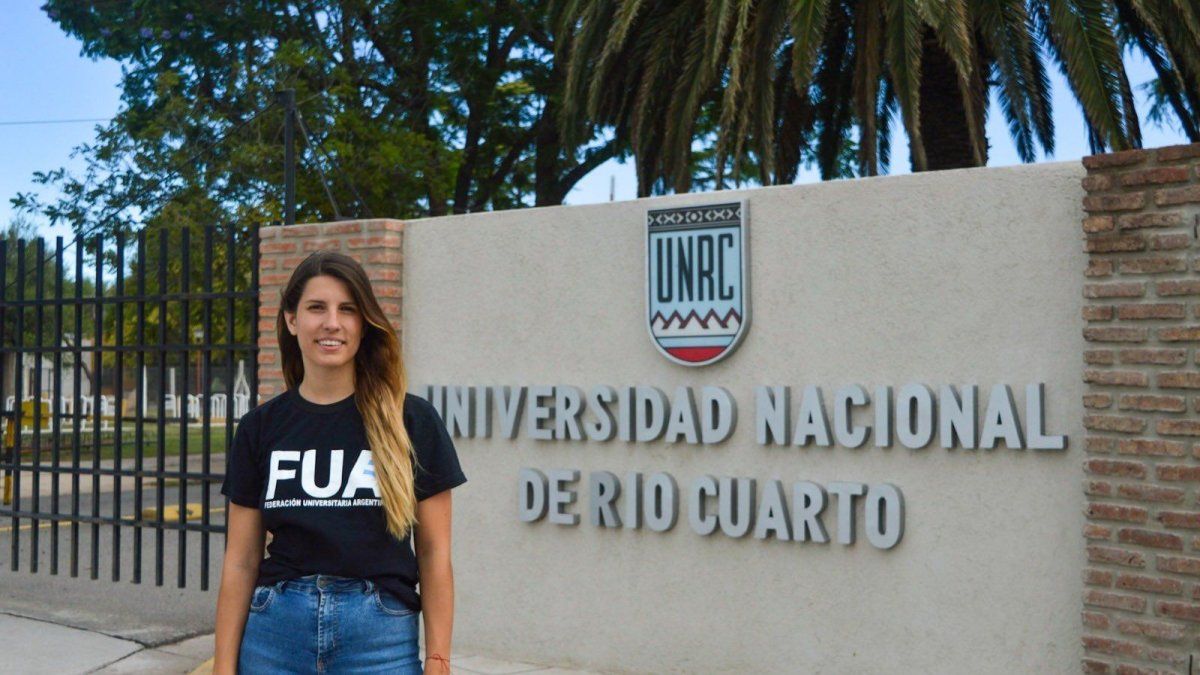In dialogue with ScopeFernández reaffirmed his statements and assured that The Government still does not respond to four of the five requests that the universities made in the first march in April. He questioned the “unfair and intentional campaign” to delegitimize the claim but was optimistic that “the deputies have seen how they mobilized in each of their provinces.”
Piera Fernandez: It was very exciting, personally what mobilized the most was what happened in the interior of the country. In my city, Río Cuarto, it was impressive. There is one fact that is interesting, and that is that in the interior the march was more massive than the one in April. Returning to Río Cuarto, there Milei won with 75% of the votes, and many people marched to support the President in the elections. It is a message for the Government, which with very little intelligence is ignoring it. In that sense we mobilized to Congress, thinking in the terms that we need the deputies to ratify the law. The veto was announced before the march, and was finally signed. But we hope that the deputies have seen how they mobilized in each of their provinces. It must have arrived. The outlook looked pessimistic and now it has changed.
Q: Are they counting the votes in Congress?
PF: Yes, we are attentive. The big enigma is the PRO block. From the FUA, with the rectors and the unions, we are contacting absolutely all the deputies. We started last week, with Danya Tavela, author of the project. After the mobilization we continued with the meetings. The rectors are calling on the deputies of their provinces to go to the universities, to see how they work. Because there is a lot of ignorance.
Q: The Interuniversity Council (CIN) spoke of “lies from the Government.” Is it ignorance or lies?
PF: There is a lot of ignorance. But the Government also launched an intentional and unfair campaign. Misrepresenting information and inventing to justify budgetary drowning. They forced us to go out to explain the ghost students. The focus was shifted. The only thing we ask is to ratify the law to guarantee conditions of dignity for students, workers and researchers. In addition to being an unfair campaign, the reproduction of these speeches does a lot of damage, they tarnish the image of one of the most valued and respected institutions, with long-term effects.
Q: In your speech at the march you emphasized the budget issue…
PF: In the April march we made a claim for five points, and only one was resolved: the operating items that rose 270%, to the limit of inflation. That serves to pay service bills, but it is only 10% of the university budget. The Government refused to resolve the other four. The first, salaries, with a loss of 50%. 85% of teachers are below the poverty line, according to a CIN report. The vast majority of teachers are single-time and earn $350,000. In general, they start with simple dedication after a long time ad honorem. Other examples, at the UTN: are single-time engineers who work in the private sector, to bring the innovation of their work to the classroom. But then what they earn doesn’t even cover transportation. So, how do we maintain university quality? In addition, simple dedication includes only class time.
Q: You mentioned four unresolved points from the April complaint. In addition to the salary, what are the other three?
PF: Another is student scholarships. Prices of all items increased: rent, food and transportation tripled, and scholarships lost 70%. They crushed them, they are scholarships based on socioeconomic evaluation, aimed at the most vulnerable sectors that also have to perform academically. The scientific and technological system was also requested, with frozen amounts. Conicet scholarships were reduced, other programs directly disappeared. High-performing students cannot join because there is no funding. The last one is the infrastructure works, there are more than a hundred stopped works: campuses, laboratories, classrooms. No peso was sent.
Q: You also made reference to Budget 2025, what do you observe?
PF: First, it is necessary that the university financing law be ratified, because with the historic budget you start very behind, with a very low floor. But not only did the Executive Branch send half of the resources requested by the rectors to Congress, it also does not even consider the inflation projected by the Government itself. Even if we believe that this inflation is going to happen, the universities are going to lose resources.
Q: To what do you attribute this tension between the universities and the Milei Government?
PF: There is an underlying ideological reason. The zero deficit falls, because the impact is 0.14% of GDP. I get the feeling that there is a problem with the public university model, equalizer, unrestricted access, academic excellence. It clashes with the exclusionary view of the Government. But he still has to give explanations, because he talks about the problems by lying about the processes, but they don’t say what the plan is for the universities.
Q: They announced that they are working on some projects…
PF: Yes, to pay public universities fees to non-resident foreigners. To begin with, he lied with the data, taking a single example from a university. Today, foreigners represent 3.9% of overall enrollment, and it is higher in postgraduate courses, which have fees. But, also, regarding non-resident foreigners, to register you must have a DNI, it is necessarily for residents, also for the same duration of the races. There is no objective debate, they run the axis.
Q: What expectations do you have for the future of university financing?
PF: We believe it is a long-term fight. First, due to the ratification of the law, then the 2025 Budget. There is a very strong process of exhaustion in the classrooms. We lost predictability, we want to go to perform, the teachers to teach. But there are very difficult personal situations. All this generates more uncertainty. I hope that Congress fulfills its duty and its role and supports the university system.
Source: Ambito
I am an author and journalist who has worked in the entertainment industry for over a decade. I currently work as a news editor at a major news website, and my focus is on covering the latest trends in entertainment. I also write occasional pieces for other outlets, and have authored two books about the entertainment industry.




